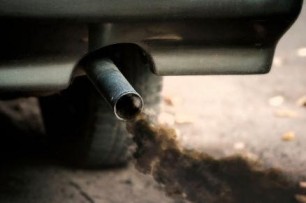General Insurance Blogs, Articles & Updates by - Magma Insurance
Have us call you
- RENEW YOUR POLICY
- BUY NEW POLICY

Traditional vs. modern kitchen equipment: which is better for your health
A kitchen is called the heart of a home for a reason. It is nothing less than a laboratory for enthusiastic food lovers. These kitchen stars love to experiment with new recipes, but they hunt for clues when it comes to kitchen remodelling.
The battle between traditional and modern kitchen equipment has been a close one. Modern technology has given us reliable, highly accurate equipment with timers that help save time. So, they are our first choice while buying utensils.
However, studies have shown that various metals used in modern kitchen utensils are detrimental to health. For example, stainless steel cookware has nickel and chromium leaching from it to cause long-term harm to an individual's health.
The revival of the traditional vs. modern kitchen equipment debate has started from the new wave of awareness about the carcinogenic properties of these everyday utensils. It has shifted the paradigm in favour of traditional equipment.
This blog strives to give you an insight into why traditional kitchen equipment is the healthier choice between the two.
1. Brass utensils:
While modern living has made us turn to the more convenient steel and glass, utensils made of old-school metals have been noted to contain many benefits. Experts have found that food stored in brass utensils preserves about 93% of nutrients.
Brass is still used abundantly in small towns and villages across the country. According to Ayurveda, it increases haemoglobin count, improves skin conditions, and pacifies pitta (aggression). Additionally, water stored in brass vessels increases strength and immunity.
2. Copper utensils:
The modern Teflon and non-stick cookware are easy to use and look great, but they may lead to health issues. The chemical that comes from the non-stick cookware is highly detrimental to your skin and may also cause liver tumours, breast cancer, infertility, and kidney disorders.
Copper is a great alternative. Research has now proved that food cooked in copper vessels is rich in collagens that offer various health advantages. Water stored in copper overnight gives the maximum benefits of this metal. It detoxifies the body, helps increase haemoglobin secretion, and helps the peristaltic movement of the gut.
3. Silverware:
Silver is an unconventional choice for cutlery these days when everyone has turned to ceramic. According to Ayurvedic science, silver is good for people with dizziness and excessive thirst. It calms down inflammation and helps people with low sperm count.
Continuing the teachings of Ayurveda, if you're a pitta type, you have a higher chance of having red, sensitive skin and are quick to anger. Using silverware will reduce your irritation and calm reactive skin.
4. Clay utensils:
These utensils help in maintaining healthy nutrients while cooking. Although it takes double the time to cook in clay pots and generally doesn't look as sophisticated as modern kitchen utensils, they preserve complete nutrition in food. An Ayurvedic study proved that eating in clay utensils relieves pain in those with rheumatoid arthritis.
Modern kitchen equipment gives a level of comfort and sophistication to our homes. The traditional utensils have a charm of their own. They may look old-fashioned compared to the modern but overshadow their health benefits. You cannot compromise with quality when it comes to health.
It's always good to keep your health as the topmost priority. It is rightly quoted that "health is the greatest wealth". If health is compromised, then it can drain your wealth. Don't fall victim to unexpected health expenses. Choose the best health insurance policy for family to remain stress-free.
Click HERE to know more about health insurance policy for family.
Disclaimer: The information provided above is for illustrative purposes only. To get more details, please refer to policy wordings and prospectus before purchasing a policy.

Driverless cars have become a reality, but are they covered under your car insurance
Futuristic innovations are taking the world by storm, and the automobile industry is no exception. The most recent trend that has caught an upswing among car enthusiasts is self-driving or autonomous cars. While progress has been slow, it is still exciting to imagine a world where driving is hands-free.
While the concept is likely to do away the requirements of the drivers, what about the need to buy new car insurance? Will the revolutionary technology make insurance obsolete, or will auto-insurance companies alter their products as per the evolving market needs? Read on to learn all about the impact of driverless cars and their impact on the insurance industry.
What exactly is a driverless car?
It is an autonomous vehicle, meaning it can move from one location to another without help from a human driver. Self-driving vehicles, or driverless cars, manifest the machine-driven future we've envisioned. It is believed that they will make our lives easier and more productive.
But are they covered under your car insurance?
A top American consulting firm predicted that vehicle collisions would drop dramatically by the middle of this century. The insurance market is expected to be negatively impacted. Since claims related to autonomous cars are expected to decrease, insurance rates will go down. However, you will still need liability insurance because autonomous vehicles can also be driven by hand.
Apart from this, the insurance industry may also see a significant drop in business as the demand for theft protection coverage falls. Cars will be equipped with a 'kill-switch,' which prevents anyone but the owner from starting the engine, and a modern GPS tracking system may make it fully theft-proof. Car owners may feel safer without theft insurance, so the insurance premiums will also decrease as a result.
However, this is also another side of it!
Some experts think introducing self-driving cars will not affect the car insurance business much just because these cars have better safety features. These days, there is already a wide range of vehicles that feature a variety of cutting-edge technologies thanks to the rapid evolution of the car industry in recent decades. However, that has not resulted in noticeable shifts in insurance premium costs. Various collision-avoidance features are available in modern cars, despite which the number of reported accidents has remained relatively high.
How will insurance companies adjust to new conditions?
Although it is currently challenging to predict how driverless cars will affect car insurance businesses, it is likely to assume that the transition will be slow enough to allow the insurance industry adequate time to adapt. There are three main areas where insurance companies can improve in the future, according to certain reports.
1. Heightened cyber security risk:
Driverless cars will observe an increase in the use of hardware and software in cars, posing a cyber security risk. There may also be an increase in the likelihood of cybercrimes such as theft, ransomware, hacking, and the improper use of data about cars. In the not-too-distant future, car insurers will be able to start offering coverage in this area.
2. Technological concerns:
There is a significant risk of catastrophic loss due to software faults, memory overflow, and algorithmic flaws in automotive-related sensors and processors. Insurers will typically cover these types of losses with additional features.
3. Infrastructure insurance:
Factors such as cloud server systems, signals, and other safeguards that will be set up for the protection of vehicles and drivers will give a substantial yearly revenue potential in premiums. The need for public infrastructure insurance and security is bound to increase.
In conclusion, the automotive and car insurance industries are changing tremendously, and this transition will likely to drive the automated future. Until we have more information about innovations, it is ideal to buy new car insurance in case you don't have one to safeguard your current asset.
Click HERE to buy new car insurance.
Disclaimer: The information provided above is for illustrative purposes only. To get more details, please refer to policy wordings and prospectus before purchasing a policy.

Must visit places for deep-sea diving in India
India has about seventy-five hundred kilometres of coastline spread across the subcontinent. It has nine coastal states and four coastal union territories, two of which are islands. Surprisingly, this makes India one of the wealthiest coastal countries in the world.
Adding to the coastal delight are several fun tourist activities that keep the golden sands and the blue water buzzing throughout the year. One such fun activity is scuba diving. Scuba diving is one of the most exhilarating underwater experiences every adventurer must try. Discovering peace beneath the sea, exploring marine life, and swimming with the fishes are sure to be among the most treasured memories.
This article will look at some of India's must-visit deep-sea diving places to add a thrilling flavour to your holidays.
1. Andaman and Nicobar Island:
The pristine island of Andaman and Nicobar is home to some of the best scuba diving spots in the world. Tourists from across the globe visit this island to explore the various underwater activities.
The colourful school of different fish and endless underwater canyons will leave a mark on your memory. Andaman promises one of the densest ecosystems of coral reefs spread across hundreds of metres combined with the view of the volcanic lava hills, making it one of the unique scuba diving experiences.
2. Lakshadweep:
The Lakshadweep islands are known for their beautiful blue water offering some of the most spectacular views for diving enthusiasts. Turtles, sharks, and manta rays are some of the most common visitors during diving expeditions.
The calm waters and the diverse aquatic life makes it ideal for beginners to enjoy this activity without inhibitions. Coral reefs, shipwrecks, and caves are a few fascinating sites that one can see during underwater adventures.
3. Karnataka:
The pigeon island or Netrani Island is set off the coast of the quaint temple town of Murudeshwar. Divers seek this place out for its unique heart-shaped diving site. Since the coast is easily accessible by Goa, Maharashtra, and Karnataka, local tourists have an added fascination for this spot. The deep, blue, and beautiful water here makes the scuba diving experience a dream come true.
4. Maharashtra:
Witness the mighty opulence of the Arabian sea at Tarkarli, situated near Sindhudurg Fort. Swim alongside dolphins and other mammals and experience a state of trance as you get lost in the quiet undercurrents of the sea.
Explore exotic fish, coral reefs, underwater plants, and much more. The beautiful and quaint backdrop will keep you wanting more. Pause and relax at the beautiful beach after experiencing the crystal-clear waters of Tarkarli.
5. Diu:
The mesmerising beaches of Diu boast of quiet and serene white beaches. Many of the diving spots here are unexplored and untouched by tourists. They are known to be safe and filled with abundant varieties of fishes that will leave you stumped and wanting more. Add Diu to your list for exploring the unexplored and making memories of a lifetime.
6. Kerala:
The queen of the Arabian sea, Kochi, and the coastal town of Kovalam host some of the country's most breathtaking deep diving sites. You can experience diving with a diverse marine life on the panoramic beaches of Kovalam.
These are a list of some of the most beautiful and serene deep-sea diving experiences in India. Explore these fun spots with loved ones and family for your next vacation. Always explore the underwater with professionals equipped with expertise in diving and top-quality equipment.
A quick internet search can help you determine the best service provider in the area. While you do not compromise on the safety while trying deep-sea diving in India, it is important to check once with your insurance. No trip is complete without investing in a good insurance plan for your family and yourself. Opt for personal accident insurance online plans to ensure that you and your loved ones are safeguarded against unexpected expenses.
Click HERE to know more about personal accident insurance online plans.
Disclaimer: The information provided above is for illustrative purposes only. To get more details, please refer to policy wordings and prospectus before purchasing a policy.

Following are a few possible reasons for black smoke emission from the exhaust
Have you ever noticed thick black smoke being emitted from your car when you accelerate? This happens due to an engine blockage, more commonly encountered in diesel cars. Diesel engines have a bad record when it comes to pollutants and cleanliness. Most car owners ignore the smoke, assuming that it will go away on its own. It is true that when you start your car, there may be a brief blast of smoke that quickly dissipates. But, if it persists, smoke tailpipes suggest that your vehicle is unhealthy and needs repair. Let's have a detailed look at the causes for black smoke emission from the exhaust.
1. Clogged air filter:
A typical engine consumes all of its fuel and emits water and CO2. The presence of black smoke suggests that something is causing the fuel to burn only partially, resulting in an improper air/fuel mixture. Because diesel fuel is only one component of the combustion process, we must also consider air. If there isn't enough air going through to the engine, the blend will be overly rich, i.e. the ratio will favour the fuel. Estimation says that dirty or clogged air filters can increase particulate emissions (PM) by 40 to 50%.
2. Defective Mass Airflow (MAF) sensor:
As previously stated, all fuel consumed requires a proper air/fuel ratio. Not only must you ensure that the air filter is allowing adequate air in, but you must also ensure that the car's system is accurately measuring the amount of air entering the vehicle.
The MAF sensor is responsible for forming the engine's proper fuel and air mixture. If something is wrong, it will detect more airflow entering the system, resulting in fuel overload. Eventually, there will be unburned fuel that may result in dense black smoke from the exhaust.
3. Broken piston rings:
Piston rings aim to prevent engine oil from entering the combustion chamber. However, as the piston rings deteriorate with age and use, engine oil flows further into the combustion chamber. This oil reacts with the fuel, forming an undesirable mixture, and the combustion of this mixture produces black smoke.
A comprehensive private car insurance India plan addresses all engine repairs or replacement issues of your vehicle. So, always purchase the engine protection cover add-on plan, as it will cover any damage or loss to your car's engine under your car insurance policy.
4. Excessive oil consumption:
Black smoke by excessive oil consumption is caused by worn valves and valve stem seals, stuck/sluggish rings deposits, and worn cylinder liners. The incorrect oil, extended drain intervals, dirty oil, and failure to maintain proper oil levels can lead to engine wear and deposits.
Getting to the bottom of reasons for excessive smoke emission ensures you're not overlooking a bigger, more expensive problem. Maintaining your vehicle can save you money while keeping you safe on the road.
If you're worried about engine problems, a good idea is an engine protection cover with your private car insurance India plan for your four-wheeler. This add-on provides comprehensive coverage for your vehicle's engine in exchange for a slight increase in your insurance rate. So upgrade for an enhanced quality of your vehicle and ensure maximum safety.
Click HERE to know more about private car insurance.
Disclaimer: The information provided above is for illustrative purposes only. To get more details, please refer to policy wordings and prospectus before purchasing a policy.

